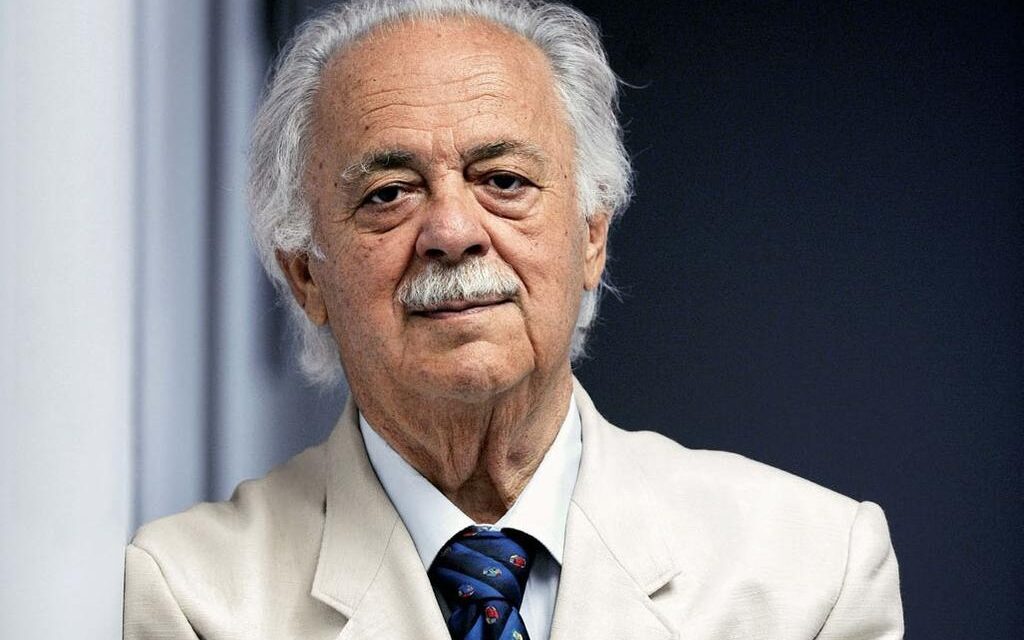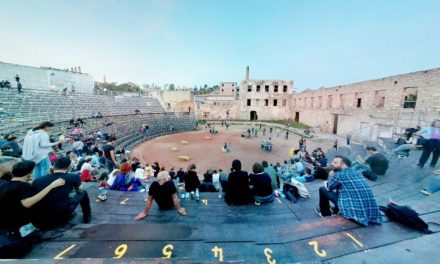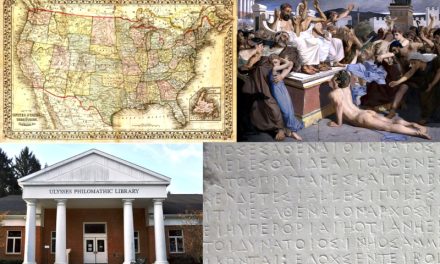George Bizos, born on 15 November 1927 in Vasilitsi, near Koroni in Greece, was a Greek-South African human rights lawyer whose life was defined by an unwavering commitment to justice and the fight against oppression. He passed away on 9 September 2020 in Johannesburg, South Africa, at the age of 92. Bizos’s journey to South Africa was marked by the turmoil of World War II. In 1941, at the age of thirteen, he and his father fled German-occupied Greece, helping seven allied New Zealand soldiers escape to Crete. Their escape led them to a refugee camp in Alexandria, Egypt, before they eventually arrived in Durban, South Africa, in 1941, after being picked up by a Royal Navy battleship.
In Johannesburg, Bizos pursued a law degree at the University of Witwatersrand (Wits), where he met Nelson Mandela, with whom he would forge a lifelong friendship and professional partnership. At Wits, Bizos became involved in student politics and was elected onto the Students Representative Council. His early political activism led to the denial of his South African citizenship in a letter that described him as ‘not fit and proper to become a South African’. The ban lasted over 30 years. “There comes a time in the life of all people when you either succumb or you fight,” he said of joining the liberation effort. He completed his law degree in 1950 and was admitted to the Johannesburg Bar in 1954.
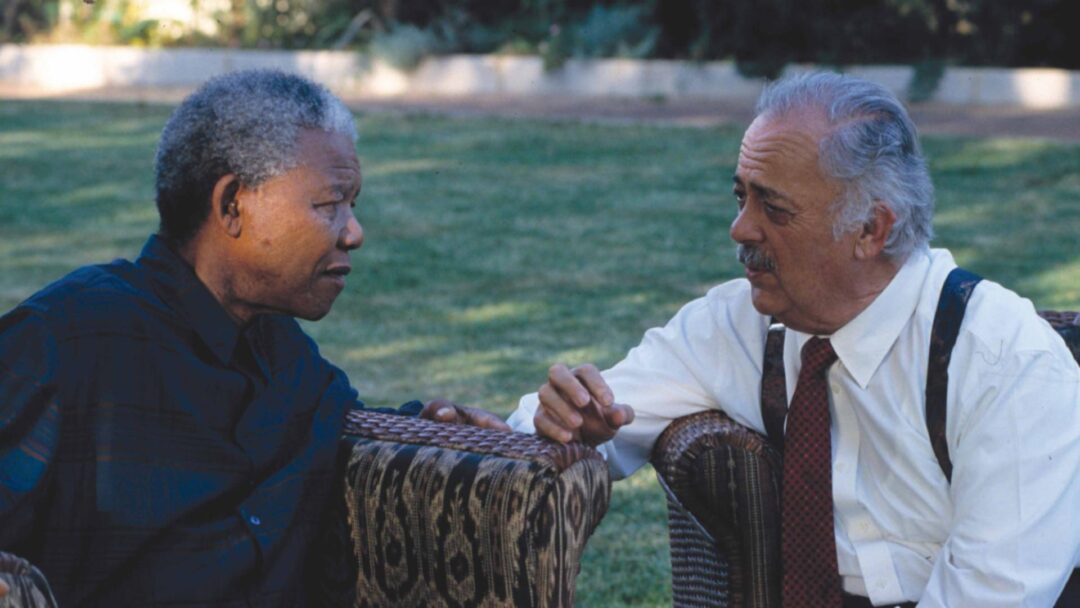
Bizos dedicated his legal career to fighting for basic human rights, particularly during the apartheid era. He served as an Advocate in Johannesburg, and from 1990, he worked as counsel at the Legal Resources Centre (LRC), one of the biggest and oldest s a human rights organisation based in South Africa, and at the Constitutional Litigation Unit. He acted as defence counsel in numerous high-profile political trials. Bizos dedicated his working life to fight for basic human rights. After the collapse of the Apartheid he turned his fight into ensuring that all South Africans enjoyed those rights enshrined and guaranteed by the democratic constitution.
During the Apartheid (1948 to 1994)
His most notable case was the 1963-64 Rivonia Trial, where he was part of the legal team defending Nelson Mandela, Walter Sisulu, and other leaders of the African National Congress (ANC). Facing charges of sabotage, which carried the death penalty, Bizos played a crucial role in potentially saving Mandela’s life. During the preparation of Mandela’s famous statement from the dock, Bizos advised him to add the words “if needs be” before the phrase “I am prepared to die”. Bizos believed this subtle but significant intervention might prevent Mandela from appearing to seek martyrdom and thus avoid a death sentence. Nelson Mandela himself acknowledged Bizos’s incisive mind and sympathetic nature in his autobiography, Long Walk to Freedom, and later described Bizos as having “behaved like a brother” during his incarceration, looking after his family and affairs.
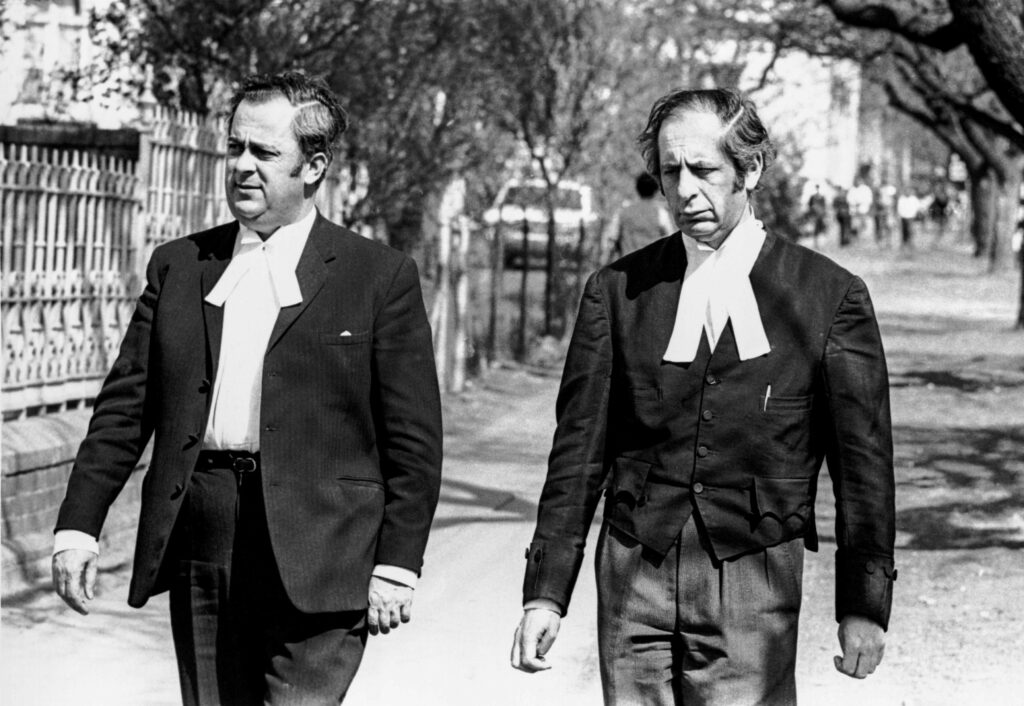
Beyond the Rivonia Trial, Bizos represented numerous other anti-apartheid activists in trials and inquests. These included representing Winnie Madikizela-Mandela, the NUSAS Five, the families of Steve Biko, Chris Hani, Ahmed Timol, and Dr Neil Aggett in inquests into their deaths in detention. At the post-Apartheid Truth and Reconciliation Commission (TRC), Bizos represented the families of many victims of apartheid atrocities, opposing amnesty applications by apartheid agents on behalf of the Biko, Hani, Goniwe, Calata, Mkonto, Mhlauli, Slovo, and Schoon families. His work at the TRC aimed to ensure justice for the families of those who died during the liberation struggle.
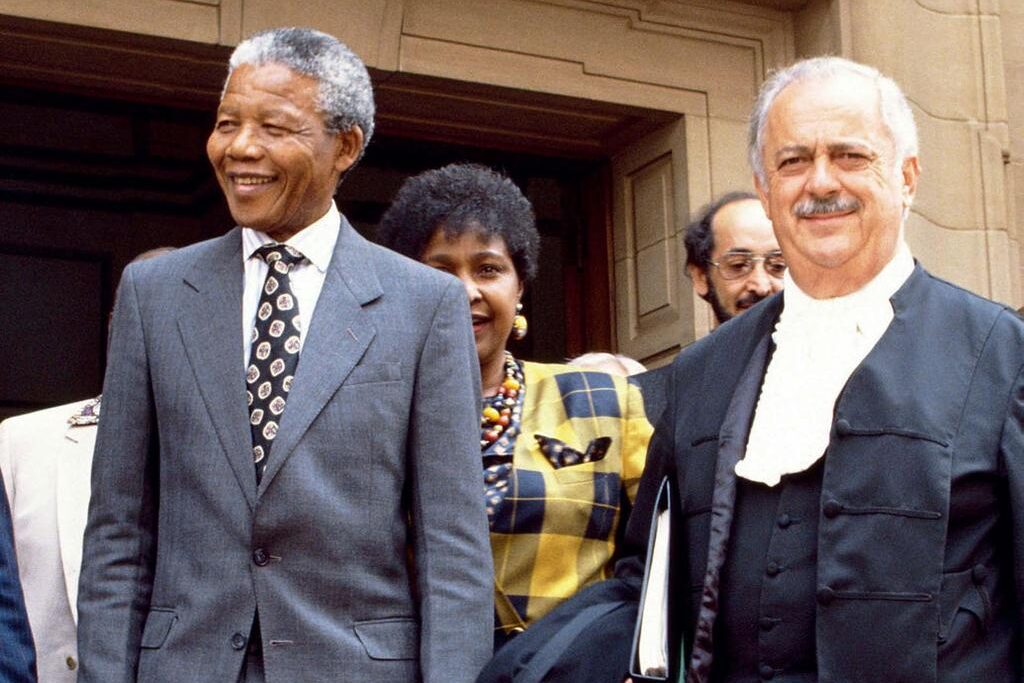
Transition to Democratic Africa
In the transition to a democratic South Africa, Bizos played a vital role. He became a member of the ANC’s Legal and Constitutional Committee in 1990 and advised the negotiating teams at the Convention for a Democratic South Africa (CODESA), participating in the drafting of the Interim Constitution and the Truth and Reconciliation Bill. He led the team that argued against the death penalty and was counsel for the National Assembly in the certification of the Constitution by the Constitutional Court in 1996, a document that enshrined the rights and freedoms of all South Africans. He continued to fight for these rights in post-apartheid South Africa, including representing some of the mine workers’ families at the Marikana Commission of Inquiry in 2012. He also represented Morgan Tsvangirai, the leader of the Zimbabwean opposition, on charges of high treason.
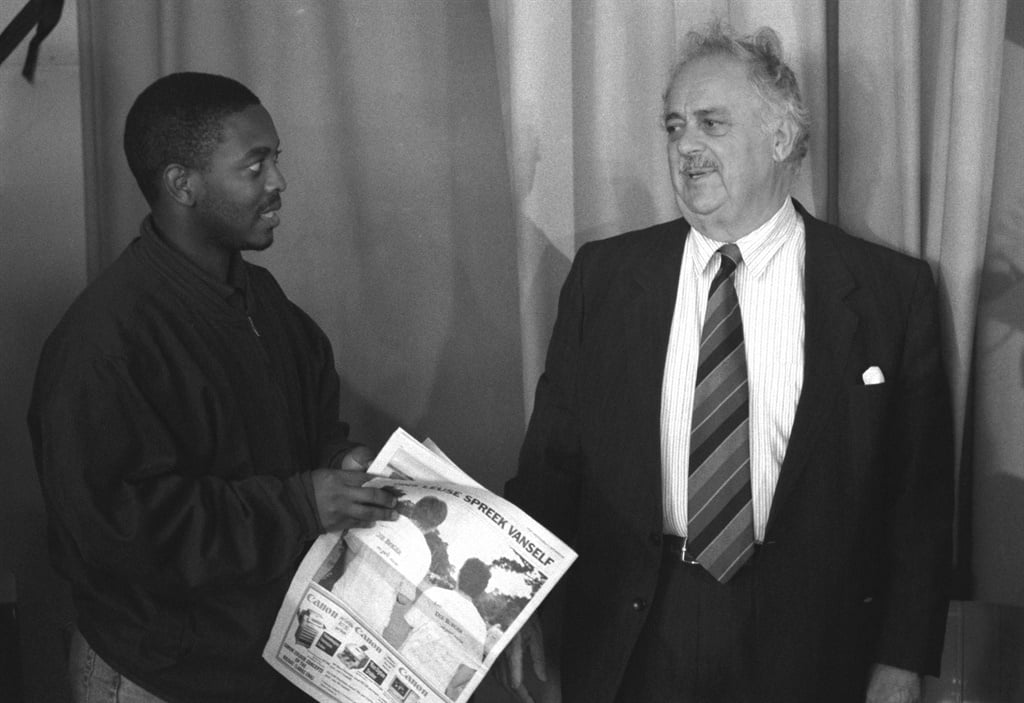
Bizos authored several books reflecting on his life and the struggle for justice, including No One to Blame?: In Pursuit of Justice in South Africa (1998), Odyssey to Freedom (2009), an autobiography, and 65 Years of Friendship (2017), chronicling his relationship with Nelson Mandela.
Throughout his distinguished career, Bizos received numerous honors and awards, including an honorary Doctorate of Law from the University of the Witwatersrand in 1999, the Order for Meritorious Service Class II medal from President Nelson Mandela in the same year, the International Trial Lawyer Prize of the Year in 2001, and the Bernard Simons Memorial Award from the International Bar Association in 2004. He also served as a Judge of the Botswana Court of Appeal from 1985 to 1993.
Τhe 2023 documentary film “Goerge Bizos Icon” chronicles the life and legacy of George Bizos from his childhood in Greece and South Africa, to his work that was dedicated to the fight against apartheid and advocating for human rights in South Africa and around the world. The documentary, that has been screened in may festivals around the world also portrays George Bizos’ lifelong friendship with Nelson Mandela.
George Bizos was married to Arethe “Rita” Daflos, who passed away in 2017, and they had three sons. His passing in 2020 was met with widespread recognition of his immense contributions to South Africa and the cause of human rights globally.
The legacy of George Bizos is one of unwavering dedication to justice, courage in the face of oppression, and profound humanity. He played a pivotal role in dismantling apartheid and building a democratic South Africa, not only through his legal expertise but also through his deep commitment to the principles of equality and human dignity. His influence as a lawyer, mentor, and advocate continues to inspire those who strive for a just society. The George Bizos SAHETI Scholarship and Bursary Fund and the Arethe Daflos-Bizos Arts Scholarship stand as testaments to his and his wife’s enduring impact. Bizos’s life serves as a powerful reminder of the crucial role lawyers can play in the fight for human rights and the pursuit of justice for all.
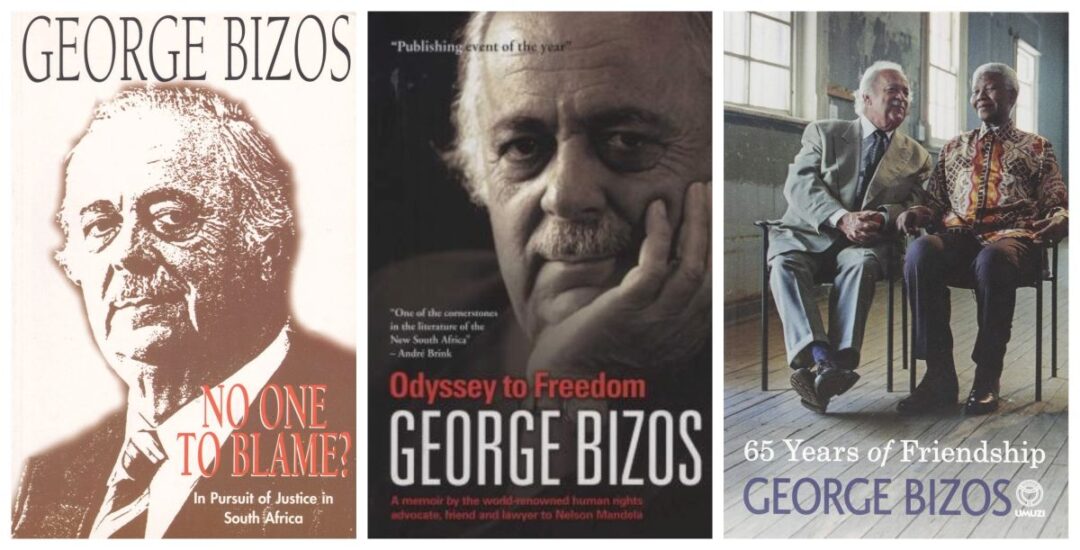
I.L. with information from George Bizos | Nelson Mandela Foundation George Bizos obituary| The Guardian; George Bizos | South African Government; George Bizos: A Legacy of Justice and Humanity in South Africa | LRC; Legal giant, legend, friend, family man: A tribute to George Bizos |Mail and Guardian; “Faraway Words” for George Bizos | Voice of Greece; Advocate George Bizos | South African History Online
Read also from Greek News Agenda
TAGS: AFRICA | GLOBAL GREEKS

